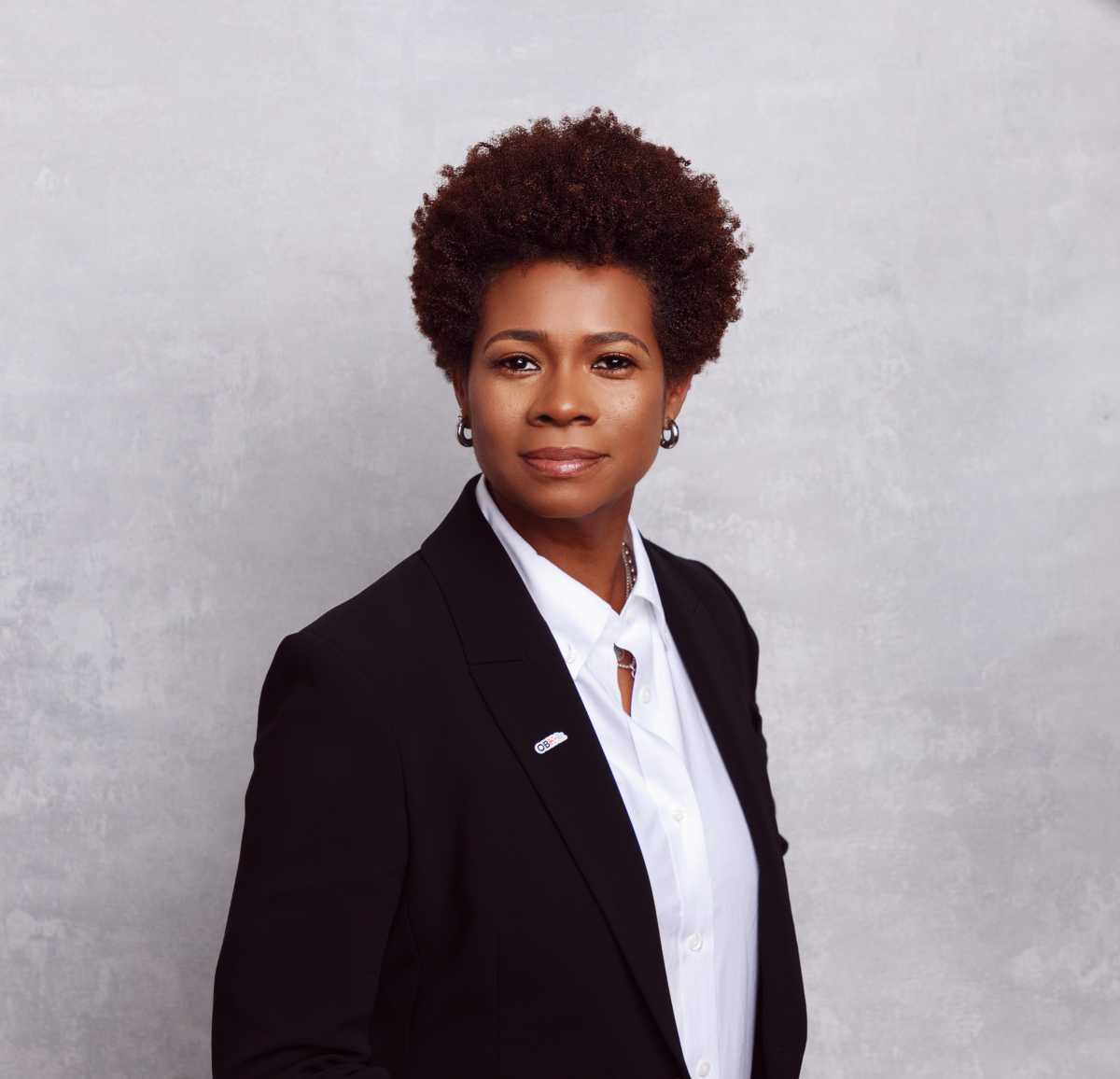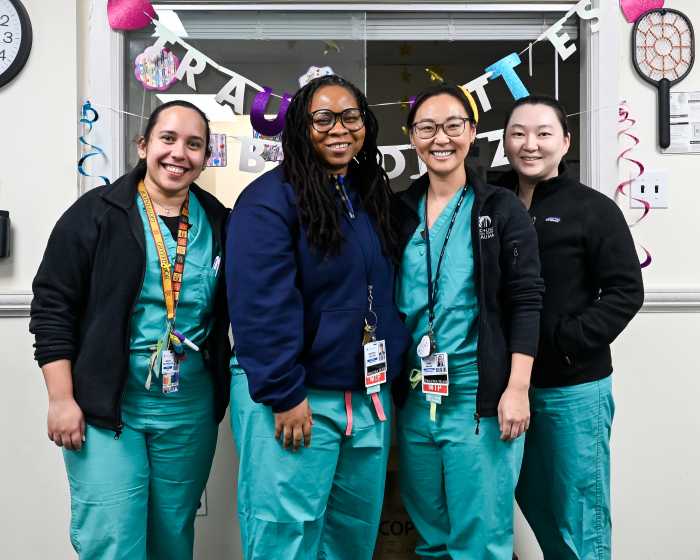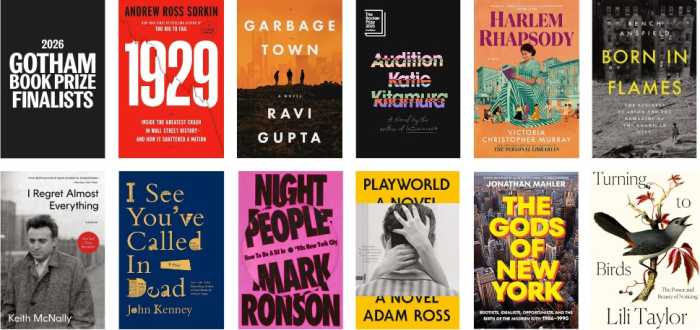Dr. Sandra Scott is proud: She is proud to be a Black out lesbian medical professional leading Brooklyn’s largest healthcare system and she is also proud to be spreading her pride and joy in practicing medicine, serving the borough’s more than 1 million neediest patients.
In January, Scott, 57, stepped into her new role as interim CEO of One Brooklyn Health. The medical veteran previously served as executive director of Brookdale University Hospital Medical Center for nearly three years and is the former chair of emergency medicine for the hospital system.
Brown served as One Brooklyn Health CEO for seven years. Starting in 2017, she brought three major safety-net hospitals — Brookdale, Interfaith Medical Center, and Kingsbrook Jewish Medical Center — together under one roof and managed the more than $1 billion medical network.
The trio of hospitals handle everything from teaching new doctors and nurses to handling emergencies to caring for long-term care for children and the elderly, including two nursing homes. The central and eastern Brooklyn-based hospital system serves primarily low-income immigrants and people of color, who rely on the system for their health care.
The hospital systems’ board of trustees tapped Scott to take over after the departure of former CEO LaRay Brown at the end of last year. Brown served as One Brooklyn Health CEO for seven years. Starting in 2017, she brought the three major safety-net hospitals — Brookdale, Interfaith Medical Center, and Kingsbrook Jewish Medical Center — together under one roof and managed the more than $1 billion medical network.
Brown “did a phenomenal job at the time that she was here to really create a system with a mission, a vision, and a direction,” Scott told Gay City News. “I took the baton on January 1. Now I am carrying this system to the next leg of the race.”
Scott’s first six months have been filled with learning and healing in the hospital system and the community.
“Hospitals are really struggling,” she said, noting that One Brooklyn Health isn’t the only hospital network that is navigating challenges post-COVID-19. Yet, within the struggle “there’s still opportunity for us to create more access, more revenue, and reduce costs.”
Opportunity and vision
Scott has a vision and a plan to carry it out. She is focused on improving the hospital’s financial health at the same time as revamping clinical operations, services, and patient care with the system’s current resources with her team.
“Without huge investments … we can do better with what we have,” Scott said.
She’s also working on building new relationships.
“I am working very closely with [hospitals, unions, politicians, and communities] to identify their needs and their perspectives,” Scott said.
1199SEIU United Healthcare Workers East’s Press Secretary Rose Ryan told Gay City News that the union has been working well with Scott and looks “forward to playing a meaningful role in the search for a permanent CEO.”
One Brooklyn Health is currently conducting a national search for a permanent CEO.
Building pride in relationships and community
One of Scott’s relationship-building investments is training One Brooklyn Health’s staff in providing cultural sensitivity care for Brooklyn’s diverse community.
Last week, she launched her first initiative, Patient-Centered Care, a one-day employee diversity training throughout One Brooklyn Health. The training helps doctors and staff recognize different communities’ health care needs and give them the culturally sensitive care they need.
Scott, who has more than 25 years of experience as an emergency room doctor and nearly five years of experience as a hospital executive, took the training on June 18.
“Even though I’m a physician and I’m a physician leader, I can tell you I learned something new,” she said. The training teaches individuals about being aware and normalizing working with the LGBTQ and other communities through language, symbols, respect when asking questions.
“That’s an example of investments that not only One Brooklyn Health is making, but other organizations are making,” Scott said.
“A patient just seeing [a rainbow button on a badge or poster in an office] may actually kind of reduce anxiety a little bit and help them feel welcome and accepted,” Scott said.
The journey toward better inclusivity has started at One Brooklyn Health.
“We’re not where I want us to be as an organization, but I am up for the challenge,” said Scott, who wants to be One Brooklyn Health’s CEO. “We’re going to continue to work towards being a space where everyone, regardless of religion, race, sexual orientation, gender, etc. feel welcomed at One Brooklyn Health.”
It’s a part of Scott’s leadership style to build community and, in the process, bring joy and purpose back to health care for medical professionals and patients.
Leading by example
Scott believes her superpowers include being authentic and proud of who she is, demonstrating commitment to understanding other cultures, and taking care of herself by surrounding herself with her community.
That’s the advice she has for new doctors, nurses, and other health professionals.
“There’s nothing that brings more joy than to be marching in the Pride Parade and seeing everyone — all shapes, colors, and sizes, celebrating diversity together in those kinds of moments,” she said.
Scott proudly was a grand marshal in Brooklyn’s Pride Parade representing One Brooklyn Health earlier this month.
“It felt really great,” she said. “We’ve really come a long way.”
Brookdale’s contingent, which marched for the first time in the NYC Pride Parade in 2022, has grown to more than 200 staff participating, she said. She’s hoping One Brooklyn Health’s contingent is even bigger this year.
“It’s just a beautiful way for us to demonstrate advocacy, to get our employees comfortable participating and advocating for the LGBT community and others,” she said. “We need to march for everyone.”































